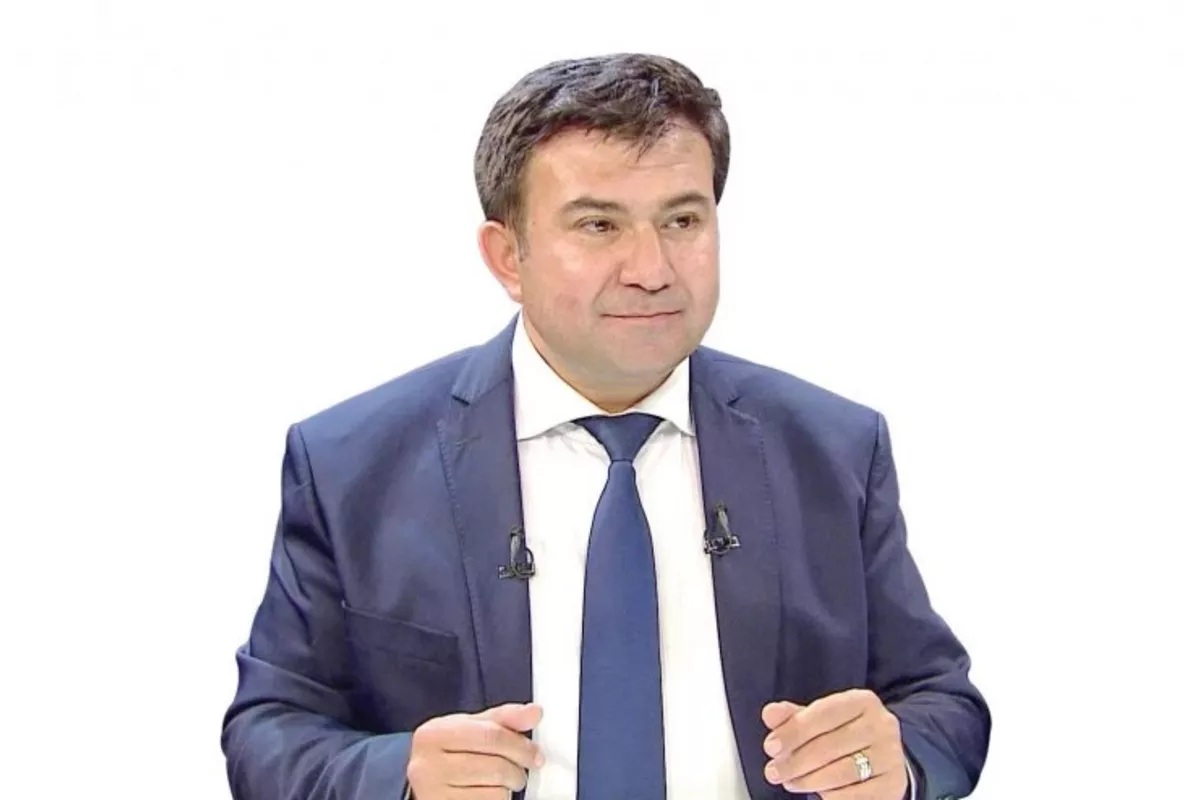
Photo: Husameddin Inac, Turkish political scientist
When Ahmed Al-Sharaa, a man until recently known to the world by a completely different name, arrived in Washington, the Middle East seemed to enter a new political orbit. The first meeting between a Syrian leader and an American president in decades immediately shifted the regional balance. At the same table now sat the key actors shaping a new regional framework: the United States, Syria, Israel, and Türkiye.
But what lies behind this historic gesture? How does Ankara view Washington’s attempt to construct a “new Syria”? And why are Turkish-American disagreements in Syria now at a crossroads, poised to become either a strategic agreement or the region’s most serious military crisis in years?
The Caspian Post explores these questions in a candid conversation with Turkish political scientist Hüsamettin İnaç, who explains why Al-Sharaa’s visit became a point of no return, how it was perceived in Ankara, and what the coming months may hold for the region.
- How was the visit of Syria’s interim president Ahmed Al-Sharaa to the White House received in Ankara? Can we say that Washington has effectively recognized the new authority in Damascus, and how does this align or conflict with Türkiye’s interests?
Photo credit: White House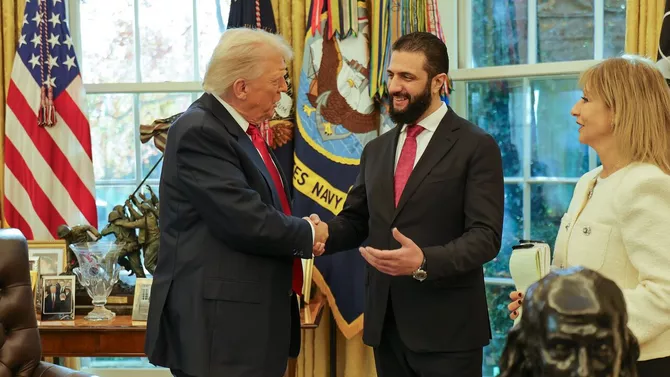
- Türkiye would welcome the establishment of ties between the United States and the new Syrian leadership, as this could eventually help Syria gain recognition and legitimacy - first from the U.S. and then from the broader international community. With such legitimacy, the Syrian state would be able to strengthen its independence and sovereignty, gradually reduce regional threats, stabilize its economy, and, most importantly, significantly weaken the terrorist threat.
However, several issues remain. Above all, Ankara and Washington have differing visions for Syria’s future on key points. For instance, Türkiye views excessive closeness between Syria and Israel as highly undesirable. Ankara believes that Israel, pursuing an expansionist policy, seeks to create its own buffer zone by building ties with groups in southern Syria, particularly the Druze community in Suwayda Province. The U.S., meanwhile, structures its approach around Israel’s security interests.
Moreover, in northeastern Syria, the Syrian branch of the PKK operates under Israeli protection. All these contradictions must be urgently addressed for the strategies of Türkiye and the U.S. toward Syria to converge and develop a shared direction.
- After the Trump-Al-Sharaa meeting, expectations are growing that Syria may join the coalition against ISIS. How would this change the balance of power, especially in northern Syria, where Türkiye conducts its own operations against terrorist groups?
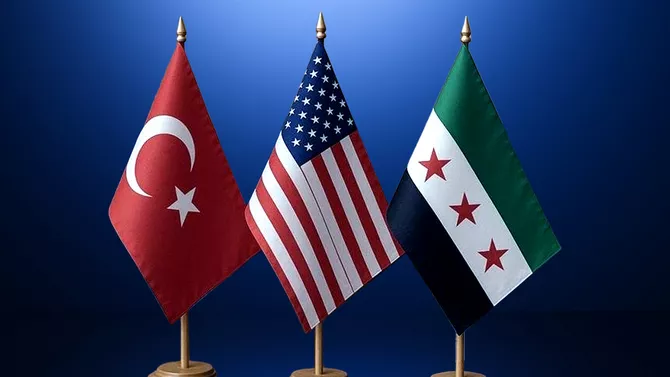
Photo credit: kurdistan24.net
- Syria’s integration into the international anti-ISIS coalition could bring both benefits and risks for Türkiye.
On one hand, the participation of official Damascus would strip the SSDF and YPG of any legitimacy they previously claimed based on their “fight against ISIS,” which would align with Ankara’s interests.
On the other hand, as a sovereign state, Syria would likely prefer to combat ISIS independently or in coordination with Türkiye, without relying on the international coalition. Ankara views this model as the most acceptable. However, if Damascus does formally join the coalition, it could limit Türkiye’s freedom of action and impose new constraints on its operations in the region.
- For years, Türkiye supported certain Syrian opposition structures, while the U.S. is now backing the former HTS leader. Could this create new tension between Ankara and Washington? Or could Türkiye pursue a pragmatic deal?
- Ahmed Al-Sharaa now finds himself in the position of a head of state who must work with actors whose interests often conflict. The expectations Washington places on Al-Sharaa differ significantly from those of Türkiye.
Under the banner of ensuring Israel’s security, Washington is pushing for a more federalized, fragmented, and ultimately weakened Syrian state.
Türkiye, by contrast, seeks a unitary, centralized, and strong Syria - the stronger Damascus becomes and the more fully it controls its territory, the better positioned it is to eliminate the terrorist threat that directly affects Türkiye’s national security.
However, such consolidation is impossible as long as Israel maintains the freedom to conduct military operations at will, preserves an expansionist posture, and holds strategic positions, even on Mount Hermon, that leave Damascus under constant pressure. Under these conditions, full sovereignty and genuine independence for Syria cannot realistically coexist.
- One key factor is Israel’s position and the possibility of a new Syrian-Israeli security agreement under U.S. mediation. How does Ankara view this?
REUTERS/Joshua Roberts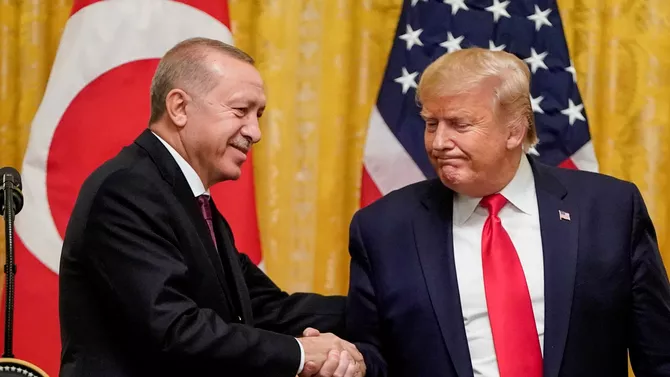
- A Syrian-Israeli rapprochement would produce outcomes that run directly counter to the regional security architecture Türkiye is trying to build.
Israel is concerned about Syrian military installations that limit its operational flexibility, particularly in the airspace. Türkiye, however, aims to establish its own air, naval, and land bases in Syria, especially around Palmyra, and to conclude a defense cooperation agreement with Damascus.
Israel, meanwhile, views Syria as a natural zone of expansion and seeks to become Türkiye’s de facto neighbor through friendly forces, particularly the Druze and the PKK-linked units in the north. Ankara considers this a serious national security threat and fundamentally incompatible with its strategic vision.
- Al-Sharaa’s removal from the UN sanctions list and the partial easing of the Caesar Act by the U.S. are reshaping the region’s economic landscape. Does this mark the start of Syria’s reintegration into the global economy? What will be the impact on Turkish-Syrian trade and border security?
- The Caesar Act was designed as an economic measure against the Assad regime, which oppressed its people and fought the opposition. These sanctions, supported by both the U.S. and the UN, were intended to limit the presence of Russia and Iran in Syria.
But today neither the Assad regime nor Russia nor Iran exists in Syria in their former capacity, which means the sanctions have lost their original purpose. Yet instead of permanently ending the Caesar Act, the U.S. Congress delegated to Donald Trump the authority to suspend it every six months. This is part of Washington’s policy of maintaining Syrian dependence.
By doing so, the Trump administration keeps leverage to slow regional integration within the framework of the Abraham Accords and relations with actors it views as sources of instability. As a result, Syria remains unable to function as an independent state capable of making effective, binding decisions.
- Washington is promoting a “new Syria” distanced from Assad and Iran. Could the U.S. attempt to build an alternative political center of influence in Damascus? How would Türkiye respond to a potential reduction of Iranian presence?
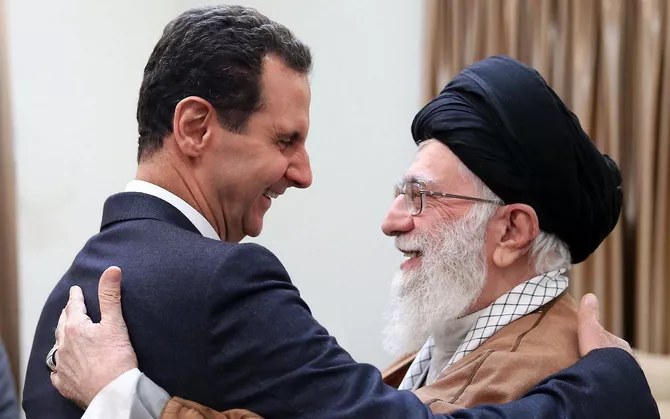
Photo credit: TASS
- The Trump-Al-Sharaa meeting clearly demonstrated the U.S. desire to build a strong foothold in Damascus. This would also restrain Israel, which often takes steps that undermine regional stability.
At the same time, creating such a center of influence could eliminate Iran’s presence in Syria, a scenario Türkiye would welcome wholeheartedly. Iran has never pursued a Syrian policy aligned with Turkish interests. It supported Assad unconditionally while also strengthening the YPG/SDG structures that pose a direct national security threat to Türkiye.
The removal of Iranian influence would therefore create a geopolitical environment favorable to Türkiye’s anti-terrorism strategy and to the restoration of Syria’s sovereignty and independence. Currently, Iran’s presence is the main obstacle to such an environment.
- Many analysts call Al-Sharaa’s visit to Washington the beginning of a “new era” for the Middle East. What changes do you expect within the next 6-12 months in the Ankara-Washington-Damascus triangle, and where will Israel’s interests fit in?
Creator: cenkertekin | Credit: Getty Images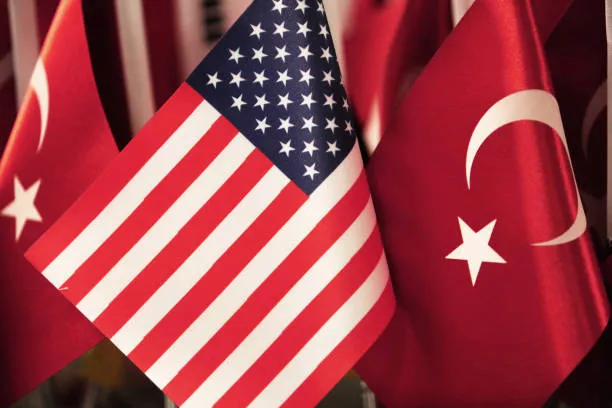
- Given the current geopolitical situation, I am among those who believe that President Trump and our President Recep Tayyip Erdogan must soon hold thorough and substantive talks on Syria. So far, Trump has not clearly outlined his position on Syria, which creates major uncertainties, particularly regarding the integration of the Syrian branch of the PKK (YPG/SDG) into the Syrian army.
Türkiye insists that SDG fighters must fully lay down their arms and become ordinary members of the Syrian armed forces.
The U.S. and Israel argue that they should join the central army while maintaining control over their territories and preserving their administrative and military autonomy.
For Ankara, this is absolutely unacceptable. An SDG retaining territorial control and autonomous structures, backed by the U.S. and Israel, could quickly evolve into a de facto state entity, and Mazlum Abdi could replace Al-Sharaa at any moment.
If this issue is not urgently clarified at the leadership level, and if Israeli operations against Damascus are not curbed, Türkiye may face the unavoidable necessity of launching a military operation by March. Ankara sees Syria’s future as a unitary state with restored territorial integrity and a strengthened economy.
As a result, a confrontation between Türkiye and Israel on Syrian territory becomes almost inevitable, since Israel is fighting against exactly the model of Syria that Ankara aims to build.
Share on social media